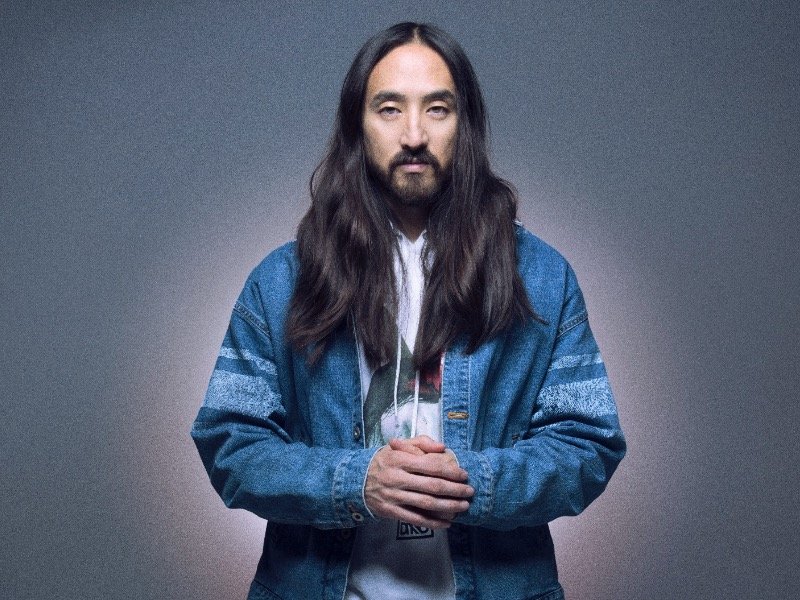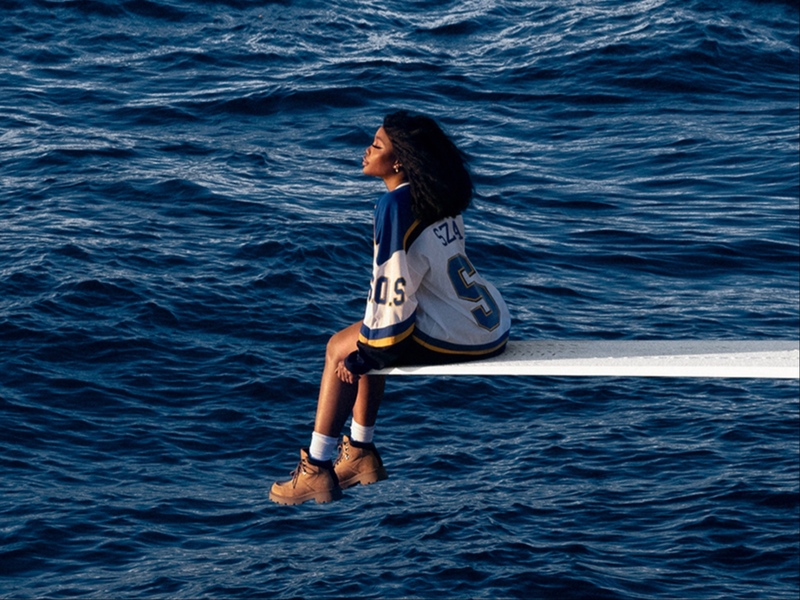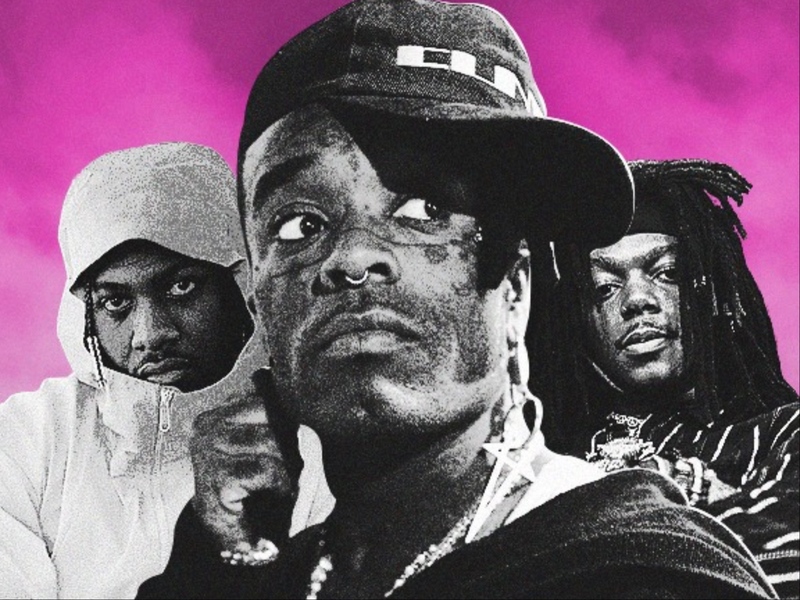This interview originally posted in February of 2018, but in honor of his return to Summerfest on Wednesday night, we've updated and reposted it. Enjoy!
After his high-energy, cake-splattering performance at Summerfest two years ago, EDM icon Steve Aoki quickly took to social media to make an important announcement: He f*cking loves Milwaukee.
It would seem the honeymoon isn't over. Talking with Aoki over the phone before his visit to The Rave in February of 2018 – a part of his "Kolony Tour" alongside Desiigner, Deorro, Grandtheft, Bad Royale and Bok Nero – Aoki again professed his love to Milwaukee.
"I think it was my first time at Summerfest, and that was an incredible crowd," Aoki recalled. "I’ve been playing the Eagles Ballroom at The Rave for years, and I’ve had the most incredible shows. When you think of the underrated cities of America, as far as EDM culture and how big EDM’s gotten, Milwaukee is on that list, because it’s just such a large contingency of people that love this music and always have this amazing energy at our shows there. You always want to come back to Milwaukee, that’s for sure."
And so he has. And he'll do so again on Wednesday night, headlining the Miller Lite Oasis on the opening day of the Big Gig. But before he hits the Summerfest stage yet again, here's our conversation about his personal Netflix documentary on both his career and his childhood (his father was Rocky Aoki, wrestler, powerboat racer and founder of Benihana), and his early years of "DJ boot camp" – back when performing wasn't such a piece of cake.
OnMilwaukee: In our review of your Summerfest show, after talking with some of the soundboard operators, they said that you do not particularly plan out the playlist. How much of going into a show night do you have planned, and how much is just feeling the energy of the room?
Steve Aoki: It depends on the kind of show I’m doing. If I’m doing a DJ set out in, like, Vegas, then I am winging it because I have to be versatile with the crowd. I have no idea what kind of crowd I’ll be playing in front of.
And I’ll tell you, in my earlier career, when I had less music and I was under the gun – like, you better impress this crowd or else you might not get a gig here – those were the days when I was in this, like, DJ boot camp where you have to be versatile, swing left, swing right. I went through that boot camp for years and years.
Now, it’s a little bit different because when people come see my show, the way I treat it – especially, for example, this "Kolony Tour" I’m doing – it’s less about winging it and more about really giving the people the Steve Aoki experience and the Steve Aoki music. The set list I’m playing is all my music; I’m playing "Kolony." So it’s very structured in that way. I’m not going to go off and play a Kendrick Lamar/Jay-Z collab or something or whatever it might be. I’m really going to do a Steve Aoki show. So it’s a little more structured there.
On that DJ boot camp, do you recall your worst show? One that’s always in the back of your head as the nightmare show?
Yeah, definitely. The only way you learn is when you fail. You never learn when you’re comfortable, right? Every possible situation you could imagine, I’ve been through.
The ones that stand out are the ones where you have no control of variables in front of you. You have no control of circumstances that are happening, whether it’s technical or something wrong with the equipment. But you are to blame if the music is off. Doesn’t matter if it’s your fault or if it’s the power went off in the whole building. It just doesn’t matter. You have to be able to permeate the audience and win them over when things like that happen. And when things like that happen, you can’t just duck and hide away like a little kid. You have to get up and take the heat and ride it out.
Your documentary, "I’ll Sleep When I’m Dead," is currently on Netflix. Was it difficult to be that open in a documentary and have all of your personal life out there and into the world – and then also moving forward from it as well?
Yeah, that was definitely the case. It took some time for me to get even to that stage with the director. If some guy just ambushes your room and starts digging deep into your life, you’re going to have a hard time with it. But when he’s your friend that you have this level of trust and confidence and just a friendship with who you’re working with, it’s a different story.
I’ve said this many times before, it was more like a therapy session, talking about things that I very rarely talk about. Whenever I do interviews or get in front of a camera, I very rarely talk about my father or my early upbringing. I’ll talk about music all day – my label, the history of Dim Mak, I can talk to you about production, the DJ life. It was hard, but I’m glad that we went there. It opened up a lane in the documentary that I really can’t do with people. The way I see it, the doc is less about me and more about the very common thing: not necessarily the story itself, but the feeling that you have that you always want to impress your father. That kind of story relates to a lot of people.
You famously do not drink. Is that hard to maintain while performing EDM shows that are known for this party culture?
The way I see it is that I want everyone to have a good time. You can do whatever you do – I’m not going to judge anyone. But for me, I’m the conductor. I’m the DJ. I’m basically leading everyone into this musical adventure we’re going to have. And in order for me to really, truly do that, I need to be able to focus and I need to have clarity and I need to have situational awareness. I need to have all of those things, where if I was drinking or high, I couldn’t control that. I couldn’t be the best DJ, really look out into the crowd and really analyze and move the audience to a place they’ve never been before. I care very deeply about my work. I care very deeply about what I do. And I take it very seriously.
But because I don’t drink doesn’t mean other people don’t have to drink. That’s not the point. I don’t want to put that out there. I want you guys to have a good time. You came here to have a great time; however way you want to do it, do it – but be safe – and let’s go on a journey together.
As much as it is a gigantic cliché to say that one has always had a passion for film, Matt Mueller has always had a passion for film. Whether it was bringing in the latest movie reviews for his first grade show-and-tell or writing film reviews for the St. Norbert College Times as a high school student, Matt is way too obsessed with movies for his own good.
When he's not writing about the latest blockbuster or talking much too glowingly about "Piranha 3D," Matt can probably be found watching literally any sport (minus cricket) or working at - get this - a local movie theater. Or watching a movie. Yeah, he's probably watching a movie.







